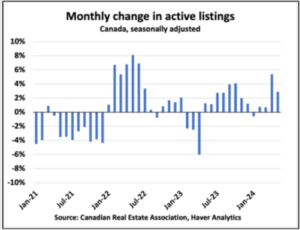Breaking down barriers: The path to modernizing property information in British Columbia’s Interior

Advertisement: Click here to learn how to Generate Art From Text
The largest financial transaction that most British Columbians ever make is buying or selling a house. To protect their clients’ interests and help them make informed decisions, reaWe ltors have a professional obligation to provide all information about a property they believe their clients should know.
Realtors who work with a seller often make requests for property information as part of their listing process. This information is usually shared with potential buyers and through the listing. This information should be provided to consumers as soon as possible. It protects both buyers, and sellers.
Interior B.C. Realtors are unable to access vital information from local governments
Unfortunately, in B.C. Realtors in the interior are often faced with huge barriers by local governments when trying to access vital municipally held information about a particular property. The chronic underfunding of local governments has resulted in a patchwork of rules and technology that is outdated and makes it difficult for consumers and realtors to obtain the information they need to buy or sell homes.
To remove these barriers, and modernize the accessibility to municipal property information the Association of Interior Realtors partnered up with Real North Strategies and developed a policy report aimed first at surveying the key municipalities in the area to define the issue and then developing a plan to improve access to property information throughout B.C. Interior.
The problem of property information
To start, AIR’s report found a general lack of digitization of property records among municipalities in the B.C. Interior. In fact, only 2 of the 13 municipalities studied for the report had fully digitized their records, and others were still completely paper-based. In some municipalities, realtors who need to access information on building must physically go to municipal office to request, pay and pick up documents.
The provincial Freedom of Information and Protection of Personal Information Act (FOIPPA) also applies to all municipalities, which complicates the sharing of property information.
While some municipalities have successfully integrated FOIPPA requests in this aspect of a transaction, others require third party consent or offer an individualized system for the distribution of information according to FOIPPA regulations. This confusion forces realtors and clients to obtain consent in some cases far in advance of the closing date, and to be at the mercy of municipal staff in terms of getting information about a new home.
Above all, AIR’s report found that municipalities are woefully under-resourced when it comes to managing and administering municipal property information. This lack of budgets and staff resources has slowed down innovation, caused delays in obtaining documents (sometimes as long as two weeks), and led to confusion among civil servants, consumers, and realtors.
The call for a Digital Revolution
Municipalities and provincial governments have a role to share in modernizing how information is requested from and provided to consumers to help them in their real estate transaction.
AIR calls for the creation, at the provincial level, of a municipal record modernization fund similar to a program already in place in OntarioThis program provides funding for municipal governments to modernize services. To help municipalities bridge their resource gap, provincial funding is essential. Another recommendation would be to digitize FOIPPA by partnering with the provincial government in order to reduce turnaround times for document requests based on the needs of each municipality.
At the local level the theme of digitalization is a common thread that runs through the remaining recommendations.
- Enhancing the way consumers can actually request and apply for property information online,
- Online payment of documentation by consumers to municipalities is now possible.
- While waiting for documentation, consumers can track and monitor other aspects of the sale or purchase of their home.
While challenges exist, avenues for improvement in municipal property processes in B.C.’s Interior municipalities are clear. Embracing modernization through provincial support and a commitment to digitization will deliver a better experience for end users and greatly enhance consumer protection — not just for the Interior but for the province as a whole.
Review the policy report Here is a link to the article.

‘ Credit:
Original content by realestatemagazine.ca – “Breaking down barriers: The path to modernizing property information in British Columbia’s Interior”
Read the complete article at https://realestatemagazine.ca/breaking-down-barriers-the-path-to-modernizing-property-information-in-british-columbias-interior/





